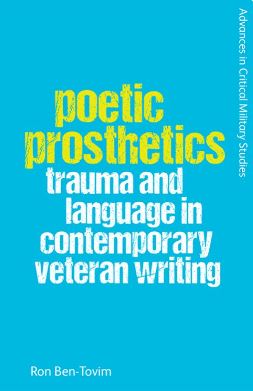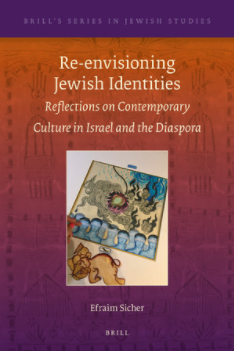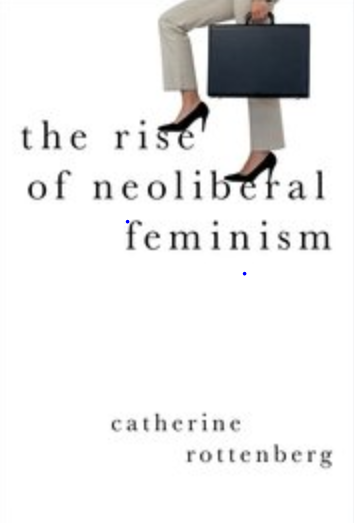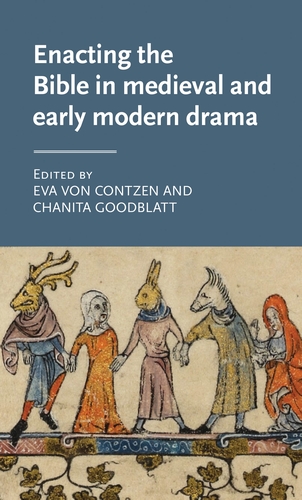Does reading shape who we are? What happens to the relationship between reading and subject-formation as methods of interpretation travel globally? Yael Segalovitz probes these questions by tracing the transnational journey of the New Critical practice of close reading from the United States to Brazil and Israel in the mid-twentieth century. Challenging the traditional view of New Criticism as a purely aesthetic project, Segalovitz illustrates its underlying pedagogical objective: to cultivate close readers capable of momentarily suspending subjectivity through focused attention. How Close Reading Made Us shows that close reading, as a technique of the self, exerted a far-reaching influence on international modernist literary production, impacting writers such as Clarice Lispector, Yehuda Amichai, William Faulkner, João Guimarães Rosa, and A. B. Yehoshua. To appreciate close reading's enduring vitality in literary studies and effectively adapt this method to the present, Segalovitz argues, we must comprehend its many legacies beyond the confines of the Anglophone tradition.

Poetic Prosthetics provides an analytical tool for reading war and trauma literature, focussing on contemporary British and American soldier writing, published online in various forums by the soldiers themselves since the onset of wars in Iraq and Afghanistan, and in some cases, recent writings of veterans of the Falkland War. The book presents a new perspective on the effect of violence on individual personalities as well as on the ability of veterans to reintegrate into society by addressing the damage done to language as an injury. It highlights that soldiers work through an incompatibility between a former way of life and their new linguistic reality by forming a different mode of speaking, through literature or poetry. The independent nature of these poems sheds light on the process of returning to life through writing, and on the life-giving force of literature for repatriated veterans.

The book selects six key areas in which the boundaries of Jewish identities have been interrogated and renegotiated: nation, ethnicity, gender, sexuality, religion, and the Holocaust. In each of these areas Sicher explores how major and emerging contemporary writers and artists re-envision the meaning of their identities. Such re-envisioning may be literally visual or metaphorical in the search for expression of artistic self between the conventional paradigms of the past and new ways of thinking.
The thirteen chapters in this collection open up new horizons for the study of biblical drama by putting special emphasis on multitemporality, the intersections of biblical narrative and performance, and the strategies employed by playwrights to rework and adapt the biblical source material in Catholic, Protestant and Jewish culture. Aspects under scrutiny include dramatic traditions, confessional and religious rites, dogmas and debates, conceptualisations of performance, and audience response. The contributors stress the co-presence of biblical and contemporary concerns in the periods under discussion, conceiving of biblical drama as a central participant in the dynamic struggle to both interpret and translate the Bible.
Jewish women have had a fraught relationship with history, struggling for inclusion while resisting their limited role as (re)producers of the future. In Queer Expectations, Zohar Weiman-Kelman shows how Jewish women writers turned to poetry to write new histories, developing “queer expectancy” as a conceptual tool for understanding how literary texts can both invoke and resist what came before. Bringing together Jewish women’s poetry from the late nineteenth century, the interwar period, and the 1970s and 1980s, Weiman-Kelman takes readers on a boundary-crossing journey through works in English, Yiddish, and Hebrew, setting up encounters between writers of different generations, locations, and languages. Queer Expectations highlights genealogical lines of continuity drawn by authors as diverse as Emma Lazarus, Kadya Molodowsky, Leah Goldberg, Anna Margolin, Irena Klepfisz, and Adrienne Rich. These poets push back against heteronormative imperatives of biological reproduction and inheritance, opting instead for connections that twist traditional models of gender and history. Looking backward in queer ways enables new histories to emerge, intervenes in a troubled present, and gives hope for unexpect
s.

From Hillary Clinton to Ivanka Trump and from Emma Watson all the way to Beyoncé, more and more high-powered women are unabashedly identifying as feminists in the mainstream media. In the past few years feminism has indeed gained increasing visibility and even urgency. Yet, in her analysis of recent bestselling feminist manifestos, well-trafficked mommy blogs, and television series such as The Good Wife, Catherine Rottenberg reveals that a particular variant of feminism-which she calls neoliberal feminism-has come to dominate the cultural landscape, one that is not interested in a mass women's movement or struggles for social justice. Rather, this feminism has introduced the notion of a happy work-family balance into the popular imagination, while transforming balance into a feminist ideal. So-called "aspirational women" are now exhorted to focus on cultivating a felicitous equilibrium between their child-rearing responsibilities and their professional goals, and thus to abandon key goals that have historically informed feminism, including equal rights and liberation. Rottenberg maintains that because neoliberalism reduces everything to market calculations it actually needs feminism in order to "solve" thorny issues related to reproduction and care. She goes on to show how women of color and poor and immigrant women most often serve as the unacknowledged care-workers who enable professional women to strive toward balance, arguing that neoliberal feminism legitimates the exploitation of the vast majority of women while disarticulating any kind of structural critique. It is not surprising, then, that this new feminist discourse has increasingly dovetailedwith conservative forces. In Europe, gender parity has been used by Marine Le Pen and Geert Wilders to further racist, anti-immigrant agendas, while in the United States, women's rights has been invoked to justify interventions in countries with majority Muslim populations. And though campaigns such as the #MeToo and #TimesUp appear to be shifting the discussion, given our frightening neoliberal reality, these movements are currently insufficient. Rottenberg therefore concludes by raising urgent questions about how we can successfully reorient and reclaim feminism as a social justice movement.
The topic of "Kafka after Kafka" is a fascinating one: the engagement of artists, philosophers, and critics in dialogical exchange with Kafka's works. The present collection of new essays highlights the engagement of lesser known artists and commentators with Kafka, and represents those who are well known, such as Arendt, Blanchot, Nabokov, and Coetzee, from new perspectives. The fourteen essays contained here represent the most recent scholarly engagements with this topic. An essay on major trends in current Kafka criticism provides background for several essays on novelists, philosophers, and critics whose relationship to Kafka is not very well known. A section devoted to Kafka from an Israeli perspective includes artists not commonly known in the U.S. or Europe (Etgar Keret, Sayed Kashua), as well as an essay on the recent trial in Israel regarding the fate of Kafka's literary legacy. A final section addresses important contemporary approaches to Kafka in film studies, animal studies, the graphic novel, and in postmodern culture and counterculture.
Histories of rights have too often marginalized Native Americans and African Americans. Addressing this lacuna, Native Land Talk expands our understanding of freedom by examining rights theories that Indigenous and African-descended peoples articulated in the eighteenth and nineteenth centuries. As settlers began to distrust the entitlements that the English used to justify their rule, the colonized and the enslaved formulated coherent logics of freedom and belonging. By anchoring rights in nativity, they countered settlers’ attempts to dispossess and disenfranchise them. Drawing on a plethora of texts, including petitions, letters, newspapers, and official records, Yael Ben-zvi analyzes nativity’s unsettling potentials and its discursive and geopolitical implications. She shows how rights were constructed in relation to American, African, and English spaces, and explains the obstacles to historic solidarity between Native American and African American struggles.

English Biblical drama of the sixteenth century resounds with a variety of Jewish and Christian voices. Whether embodied as characters or manifested as exegetical and performative strategies, these voices participate in the central Reformation project of biblical translation. Such translations and dramatic texts are certainly enriched by studying them within the wider context of medieval and early modern biblical scholarship, which is implemented in biblical translations, commentaries and sermons. This approach is one significant contribution of the present project, as it studies the reciprocal illumination of Bible and Drama. Chanita Goodblatt explores the way in which the interpretive cruxes in the biblical text generate the dramatic text and performance, as well as how the drama’s enactment underlines the ethical and theological issues as the heart of the biblical text. By looking at English Reformation biblical drama through a double-edged prism of exegetical and performative perspectives, Goodblatt adds a new dimension to the existing discussion of the historical resonance of these plays. Jewish and Christian Voices in English Reformation Biblical Drama integrates Jewish and Christian exegetical traditions with the study of Reformation biblical drama. In doing so, this book recovers the interpretive and performative powers of both biblical and dramatic texts.
A new approach to thinking about the representation of the Other in Western society, The Jew’s Daughter: A Cultural History of a Conversion Narrative offers an insight into the gendered difference of the Jew. Focusing on a popular narrative of “The Jew’s Daughter,” which has been overlooked in conventional studies of European anti-Semitism, this innovative study looks at canonical and neglected texts which have constructed racialized and sexualized images that persist today in the media and popular culture. The book goes back before Shylock and Jessica in The Merchant of Venice and Isaac and Rebecca in Ivanhoe to seek the answers to why the Jewish father is always wicked and ugly, while his daughter is invariably desirable and open to conversion. The story unfolds in fascinating transformations, reflecting changing ideological and social discourses about gender, sexuality, religion, and nation that expose shifting perceptions of inclusion and exclusion of the Other. Unlike previous studies of the theme of the Jewess in separate literatures, Sicher provides a comparative perspective on the transnational circulation of texts in the historical context of the perception of both Jews and women as marginal or outcasts in society. The book draws on examples from the arts, history, literature, folklore, and theology to draw a complex picture of the dynamics of Jewish-Christian relations in England, France, Germany, and Eastern Europe from 1100 to 2017. In addition, the responses of Jewish authors illustrate a dialogue that has not always led to mutual understanding. This ground-breaking work will provoke questions about the history and present state of prejudiced attitudes in our society.
This volume deals with the significance of the avant-garde(s) for modern Jewish culture and the impact of the Jewish tradition on the artistic production of the avant-garde, be they reinterpretations of literary, artistic, philosophical or theological texts/traditions, or novel theoretical openings linked to elements from Judaism or Jewish culture, thought, or history.